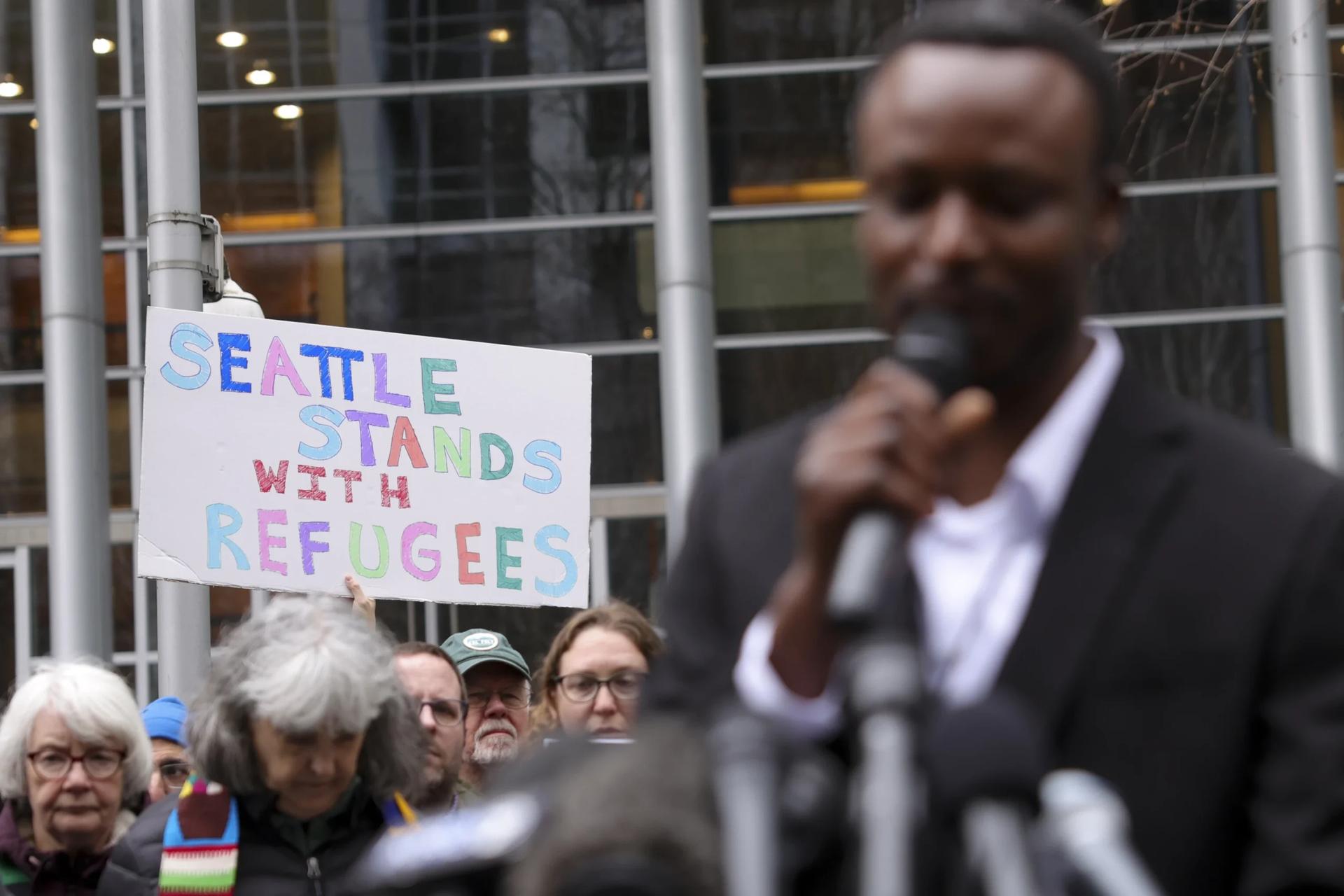YAOUNDÉ, Cameroon – As western nations take conservative measures to keep migrants at bay, a senior official of the International Catholic Migration Commission (ICMC) has warned that building fences and strengthening border controls ignores the fundamental causes of migration.
Stéphane Jaquemet – the ICMC Chief Operating Officer, Director of Policy and Director of ICMC Europe – said “people do not leave their homes unless they feel they have no other choice.”
“When we hear of young Africans dying in the Sahara or drowning in the Mediterranean in desperate attempts to reach Europe or other parts of the world, we must confront an uncomfortable truth: people do not leave their homes unless they feel they have no other choice,” Jaquemet told Crux.
According to the International Migration Organization, thousands of people worldwide lose their lives on perilous migratory routes.
Since 2014, more than 63,000 migrants have died or are missing and presumed dead on migration routes worldwide, according to the IOM Missing Migrants Project. It says 2023 was the deadliest year yet, with over 8,500 deaths recorded. Nearly 60 percent of the deaths documented by the IOM were linked to drowning. It identified the Mediterranean Sea as the world’s migrant grave, responsible for over 28,000 deaths recorded in the last decade.
The Atlantic route, connecting West Africa to the Canary Islands, has become increasingly deadly. In 2024, Caminando Fronteras (Walking Borders) reported nearly 10,000 deaths on this route. But these numbers are largely underreported due to difficulties in obtaining and verifying information, particularly on routes like the Atlantic and in the Sahara Desert.
“These tragedies speak not only to the unbearable conditions that drive people to migrate, but also to a global economic and political order that fails to ensure a dignified life for all,” Jaquemet told Crux.
Jaquemet said that this year’s WDMR theme – “Free to choose whether to migrate or to stay” – underlines the necessity to empower people so that they can build their own future within their communities.
“In many parts of the world, this freedom does not yet exist; regions are marked by conflict, human rights violations, poverty, climate-related displacement, and exploitation that make survival a daily struggle and push people to take the route of migration,” he said.
These realities find traction in Africa-a continent where 20 percent of the population fall between the 15-24 years age bracket and one in which youth unemployment rates range between 20-30 percent, according to the ILO.
Besides increasing unemployment which naturally breeds poverty, Africa is also a continent afflicted by conflict, political turmoil in some countries, and climate change – all factors that force many people to flee their homelands.
“Global inequalities are among the root causes of migration, and people will continue to seek safety and opportunity abroad until this imbalance is addressed.” Jaquemet said.
He said policies that focus on building fences, increasing border patrols, and moving migration controls outside of national borders only push the issue out of the sight of people in receiving countries.
“Though some may view them as effective in the short term, such strategies ignore the fundamental causes of migration and fail to offer humane solutions,” he said.
“Migration should not be treated as a threat to be repelled, but as a human reality to be managed with justice and compassion,” he claimed.
It is in this light that the International Catholic Migration Commission (ICMC) works not only to accompany and protect displaced people, but also to empower people at risk of leaving who would prefer to remain in their home country.
In 2024, ICMC’s staff was active in over 30 countries spanning five continents, and supported displaced people through programs focused on humanitarian assistance, development, protection and prevention, refugee resettlement and complementary pathways to resettlement, according to Jaquemet.
“For example, in Côte d’Ivoire, ICMC and its national member, the Episcopal Conference of Côte d’Ivoire, support a joint initiative to assist returnees who attempted the journey to Europe through vocational training and business support,” Jaquemet said.
He quoted Pascale-Marie, a program participant who nearly died attempting to cross the Mediterranean from Libya, who said: “I thought hope was only across the sea. Now I know it can also grow here, with my own hands.”
Jaquemet said that similarly, in the Central African Republic, ICMC and the Episcopal Conference of the Central African Republic support the reintegration of former child soldiers and survivors of human trafficking, through projects such as education and livelihood training.
“Such skill building allows them to break the cycle of violence and make a dignified living for themselves without being forced to migrate,” he told Crux.
He said ICMC also advocates for migration and refugee policies that promote dignity and respect the human rights of all displaced people. The organization does this by partnering with civil society and faith-based organizations to lobby governments, intergovernmental organizations, European institutions, and UN agencies.
“For instance, as the coordinator of the Civil Society Mechanism (CSM) of the Global Forum on Migration and Development (GFMD), ICMC plays a pivotal role in strengthening civil society networks worldwide and ensuring that grassroots organizations’ concerns are relayed and represented at the international level,” Jaquemet said.
He cited the Abuja Civil Society Forum as one example in Africa. Held in early 2023, it brought together local and diaspora grassroots organizations, which ICMC helped convene to address pressing issues at the intersection of migration, development, labor mobility, and climate change.
“By facilitating the co-creation of the Abuja Statement—an outcome document advancing concrete policy recommendations—ICMC ensured that African civil society perspectives were not only heard but effectively integrated into the global migration agenda,” he told Crux.
“In essence, ICMC combines direct protection and assistance with global advocacy and policy work, grounded in a mission to uphold dignity, human rights, and lasting solutions for migrants and refugees worldwide,” Jaquemet explained.















